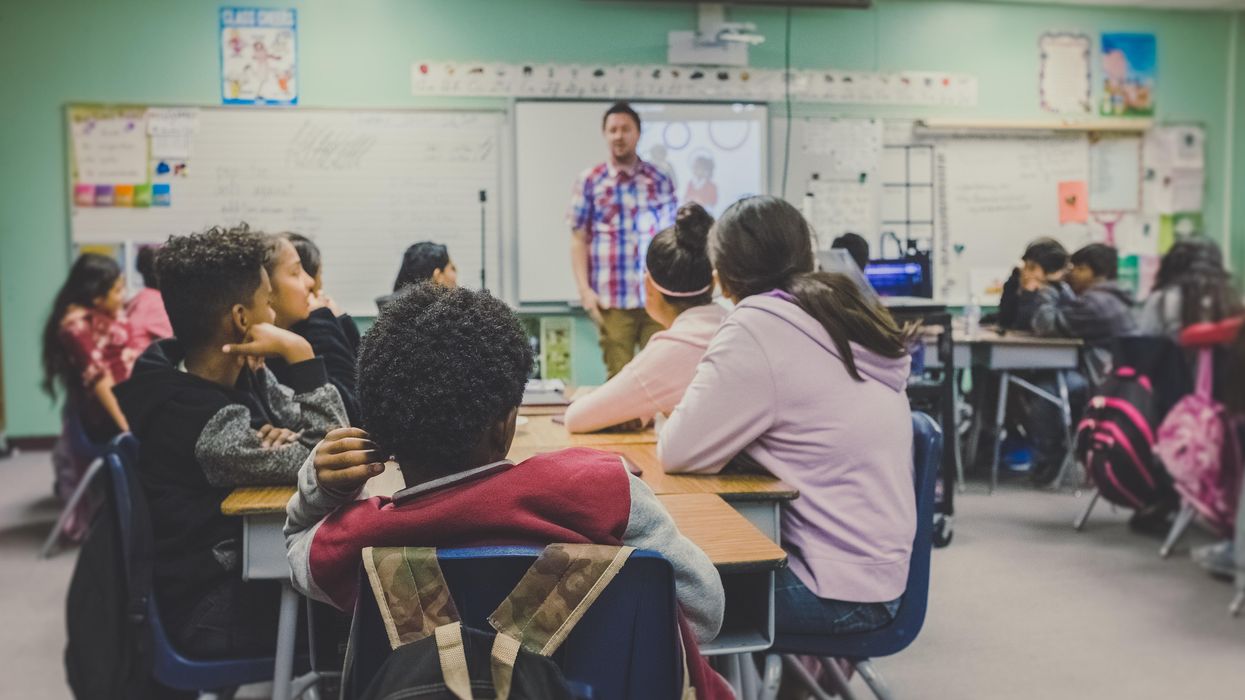Solomont is retiring this spring after seven years as dean of the Tisch College of Civic Life at Tufts University. He was ambassador to Spain and Andorra during the Obama administration.
A violent insurrection, fueled by hate and littered with the symbols of white supremacy, is more than a "wake-up call." It's a fire alarm.
Our democratic ideals, already fragile and inequitably realized, seemed impossibly distant in the past several weeks. The inauguration was a tonic, a sign that "democracy has prevailed" as President Biden eloquently put it, but it should not obscure the reality that the road before us will not be smooth.
As we examine the myriad causes and explore what's ahead, one response, among many others, must be a hard look at the state of civic education in this country. Congress can help lead this effort, starting with the passage of the Educating for Democracy Act.
We have not for many years — or perhaps ever — invested sufficiently in the civic health and education of our citizenry. The reasons are complex and varied: competing priorities, politicization and hyperpolarization, and the relative disinvestment in public education and higher education overall. But the fact is that over the course of nearly six decades, the prioritization of a few subjects (STEM and English language arts, especially) has led to a neglect of American history and civics. Where some gains have been made in high-quality civic education, they've been too often co-curricular, inequitably distributed and mostly available to white and otherwise privileged students.
Our expectations for what students should learn have been set far too low. It is one thing to teach that there are three branches of government and what each one does. It is more ambitious to expect every young American to know how to select good information, to reason with people who may disagree about complex problems, to influence a range of institutions effectively — and to uphold the core values of our republic.
But that is what our constitutional democracy demands.
Far too many students have not been empowered to meet even our currently low expectations. For the past 20 years, scores have remained flat on the only reliable national measure of student attainment in civics and history, the National Assessments of Educational Progress. Barely a quarter of students are able to demonstrate a basic proficiency in these subjects, which are so critical to our nation's future.
Raising all students well above proficiency will require significantly more time in the classroom, better prepared teachers and improved curricula. But they can't do it alone. Attaining these goals will require money.
The federal government now annually invests roughly $54 for every student on STEM education. By contrast, the investment in American history and civics is a paltry 5 cents. But the answer is not less funding for STEM or other subjects. The answer is a well-resourced public education system that educates for democracy.
One important first would be legislation given a high priority in Congress and signed soon by President Biden. The Educating for Democracy Act enjoys bipartisan support and was filed in the last Congress by a pair of prominent House members, Democrat Rosa DeLauro of Connecticut and Republican Tom Cole of Oklahoma, along with a pair of prominent senators, Democrat Chris Coons of Delaware and Republican John Cornyn of Texas. The bill calls for a federal investment of approximately 35 percent of the current federal investment in STEM education.
Effective, innovative, student-centered instruction in American history and civics is essential to the future of our democracy. It can help bridge divides, increase equity, and promote media literacy in a vastly changed information landscape. And more and more, it is also essential to our national security.
The legislation does not mandate a national curriculum or a particular instructional approach. Those decisions are quite properly left to states and local school districts. They would receive funding to strengthen and improve their approach to civic and history education. Nonprofit organizations would compete to develop improved curricula, instructional models and other programs. Colleges and universities would get help to prepare future elementary and secondary school teachers.
A generation ago, Americans awoke to the reality that the Soviet Union had succeeded in launching a satellite into space — the oft-recalled "Sputnik moment" when, among other things, America committed itself to teaching and leading in science and engineering. Today, as we continue to struggle with the assault on the Capitol, and reckon with the reality that the threat comes from within our own borders, perhaps we are on the verge of the next such awakening.
And perhaps this time, America will commit itself to teaching history and civics. Enacting the Educating for Democracy Act would give our teachers, students and communities the tools we need to begin to do just that.



















Marco Rubio is the only adult left in the room